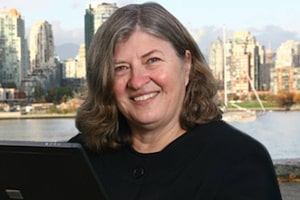The mayoral races in British Columbia’s two largest cities are becoming increasingly crowded, raising the possibility that candidates could win their elections this October with significantly less than 50-per-cent support.
In Surrey, the prospect that the winner ends up with only a fraction of the overall vote is even more likely after two more candidates joined the race last week – Liberal MP Sukh Dhaliwal and former B.C. Liberal MLA Gordie Hogg. The roster of candidates also includes incumbent Doug McCallum, councillor Brenda Locke and NDP MLA Jinny Sims. Each has their own party.
Vancouver has five candidates so far, including current mayor Kennedy Stewart, but also 10 political parties at the municipal level.
Winning elections in these two cities for both mayor and council will depend on mobilizing a core group to gain an edge in a crowded field rather than trying to appeal to a broad spectrum of voters, say two experienced political observers.
“You may end up with a council that is deeply unpopular with a majority of voters,” said Simon Fraser University political-science professor Stewart Prest. “That can lead to a delegitimization of local government and it can lead to a deeper frustration with politics.”
Kit Sauder, a former senior policy adviser to the B.C. Liberals, agreed.
“Because there’s low voter turnout and no ward system here, people don’t know what’s going on or who to hold accountable,” he said.
The elections in Vancouver and Surrey promise to be particularly nasty because Mr. McCallum and Mr. Stewart are seen as vulnerable but both still have a core base of support.
Mr. McCallum is considered beatable because of a series of controversies over his no-holds-barred drive to get rid of the RCMP in Surrey and install a municipal police force.
Mr. Stewart, a former NDP MP, has struggled since he was elected to hold together a wildly split council where he has no party behind him. He’s been accused by the other four centre to centre-right candidates of messing up on city finances, policing, public order, homelessness and climate policies.
He is being challenged by park-board commissioner John Coupar, with the Non-Partisan Association (NPA); Ken Sim with a new ABC party, the man who almost beat him last time; current councillor Colleen Hardwick with a new TEAM party; and political consultant Mark Marissen with Progress Vancouver.
Both Mr. Sauder and Mr. Prest said there might need to be a re-evaluation of municipal-election reform in B.C. if the province’s two biggest cities continue to elect leaders who represent as little as 25 per cent of those who voted and, given low voter turnouts, much less of their city’s total list of registered voters.
B.C.’s civic elections are unusual compared with those in many other provinces.
There is no system of voting by wards, so people vote for the whole council, which can mean selecting anywhere from five to 11 people, depending on the size of the city, from lists that sometimes extend to more than 100 names. As well, B.C. is one of the few places in Canada with political parties at the municipal level.
As a result, councils can end up being chaotic. Vancouver council started off the current term with councillors from four different parties. It now has councillors from six parties, because of splits among the five councillors originally elected with the NPA.
And a change in campaign financing brought in by the NDP government four years ago severely limited the ability of any party to raise so much money that it could dominate, as happened for many years.
The NDP financing changes banned corporate and union donations and limited individual ones to $1,200.
Both Mr. Prest and Mr. Sauder said changes should be considered in order to help the public choose intelligently among a confusing pool of candidates.
Mr. Prest suggested options such as runoffs for the mayoral spot, to ensure that the public can choose clearly between two candidates, or ranked ballots.
Mr. Sauder proposed that the “high-stakes competition” currently fuelling so much interest in the Surrey and Vancouver elections could be muted by moving to a ward system or a mix of ward and at-large councillors.
Both expect to see an extremely narrow mayoral win in Surrey for the candidate who can best mobilize their core supporters.
Mr. McCallum’s base is “not big but it’s hard,” said Mr. Sauder. He could attract up to 23 per cent against his challengers. “The question then is who can get 24 or 28 per cent.”
We have a weekly Western Canada newsletter written by our B.C. and Alberta bureau chiefs, providing a comprehensive package of the news you need to know about the region and its place in the issues facing Canada. Sign up today.
 Frances Bula
Frances Bula